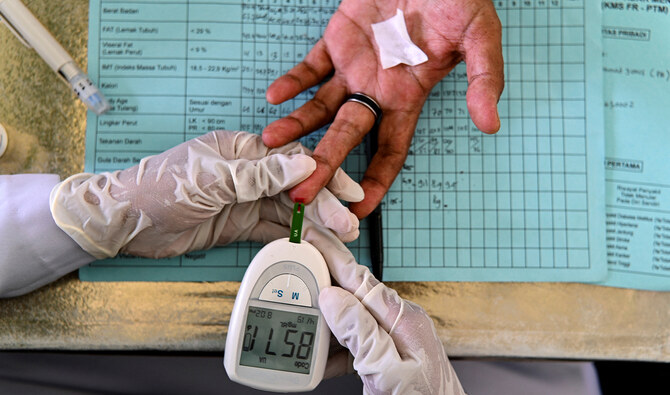A recent study published in The Lancet has revealed that over 800 Million Adults Worldwide Have Diabetes—double previous estimates—and highlights a major healthcare crisis as many of these individuals, especially in low- and middle-income countries, remain untreated.
The findings underscore the urgent need for countries to address the diabetes epidemic by improving healthcare access, promoting preventive measures, and implementing policies to support lifestyle changes.
The Global Rise : 800 Million Adults Worldwide Have Diabetes
The study conducted by the NCD Risk Factor Collaboration and the World Health Organization (WHO) provides a comprehensive analysis, revealing a stark increase in diabetes prevalence. Since 1990, the rate has doubled from around 7% to 14%, driven largely by a surge in cases across low- and middle-income countries.
Today, more than 828 million adults aged 18 years and older have diabetes. Among adults over 30, 445 million—59% of those diagnosed—are not receiving treatment.
The prevalence and treatment gaps illustrate significant disparities. While some high-income nations have improved healthcare support for diabetes, treatment access in low- and middle-income regions has remained low.
For example, Jean Claude Mbanya, a professor at the University of Yaoundé I in Cameroon, highlights that in parts of sub-Saharan Africa, only 5-10% of those with diabetes receive treatment.
Read : Top Ten Countries with the Highest Diabetic Population
Financial constraints often limit access to essential treatments like insulin or oral medications, leaving millions at risk of severe complications, including cardiovascular disease, nerve damage, and organ failure.
The Health Risks and Economic Burden of Untreated Diabetes
Diabetes is a chronic metabolic disorder characterized by high blood sugar levels, leading to a range of health complications if left untreated. High fasting plasma glucose and high glycated hemoglobin levels are common diagnostic indicators for diabetes, and these markers were essential criteria in this study to ensure accurate global prevalence estimates.
The WHO has previously estimated that around 422 million people have diabetes, but the new findings, which include more extensive data sources, indicate a much larger number.
Health risks associated with untreated diabetes are severe. The condition can cause damage to the heart, blood vessels, nerves, kidneys, and other organs, leading to long-term health complications and increased mortality.

The financial burden of diabetes is also substantial; treating diabetes-related complications places a heavy economic strain on individuals and healthcare systems, particularly in regions where the cost of insulin and other medications is prohibitive for a large portion of the population.
Professor Mbanya notes that the financial barrier to diabetes treatment means millions are left vulnerable to complications. Managing diabetes effectively requires regular monitoring, medications, and lifestyle modifications—all of which can be costly, especially in low-income regions.
According to WHO Director-General Dr. Tedros Adhanom Ghebreyesus, the rise in global diabetes cases is “alarming,” and he calls on countries to take urgent action to combat this growing health threat through health systems that can prevent, detect, and treat diabetes.
Preventing the Diabetes Epidemic: Global Policy and Lifestyle Changes
To address the growing diabetes epidemic, the WHO and other health authorities advocate for policies that encourage healthier diets and increased physical activity. Lifestyle factors, particularly poor diets and sedentary habits, are significant contributors to the rise in type 2 diabetes, which comprises the majority of cases in adults.
The study could not differentiate between type 1 and type 2 diabetes cases but indicated that type 2 diabetes, which is associated with obesity and poor diet, remains the predominant form of the condition worldwide.

Preventing and controlling diabetes also requires an integrated approach involving both health policy and community-level education. Governments can implement initiatives promoting healthy eating, increased exercise, and awareness campaigns to reduce diabetes risk factors.
At the healthcare level, increasing the availability of diagnostic tools and affordable medications, especially in low-income regions, would be a critical step toward reducing the diabetes burden. Educational programs that teach self-management and emphasize lifestyle modifications are also essential, particularly in high-risk regions.
To achieve these goals, collaborations between governments, healthcare providers, and international organizations will be crucial. As the study reveals, the diabetes epidemic demands urgent attention, and without collective action, millions more may face preventable health complications.
WHO’s recommendations call for a proactive approach, emphasizing health system reforms and policies that support healthier lifestyles to prevent and manage diabetes effectively.

